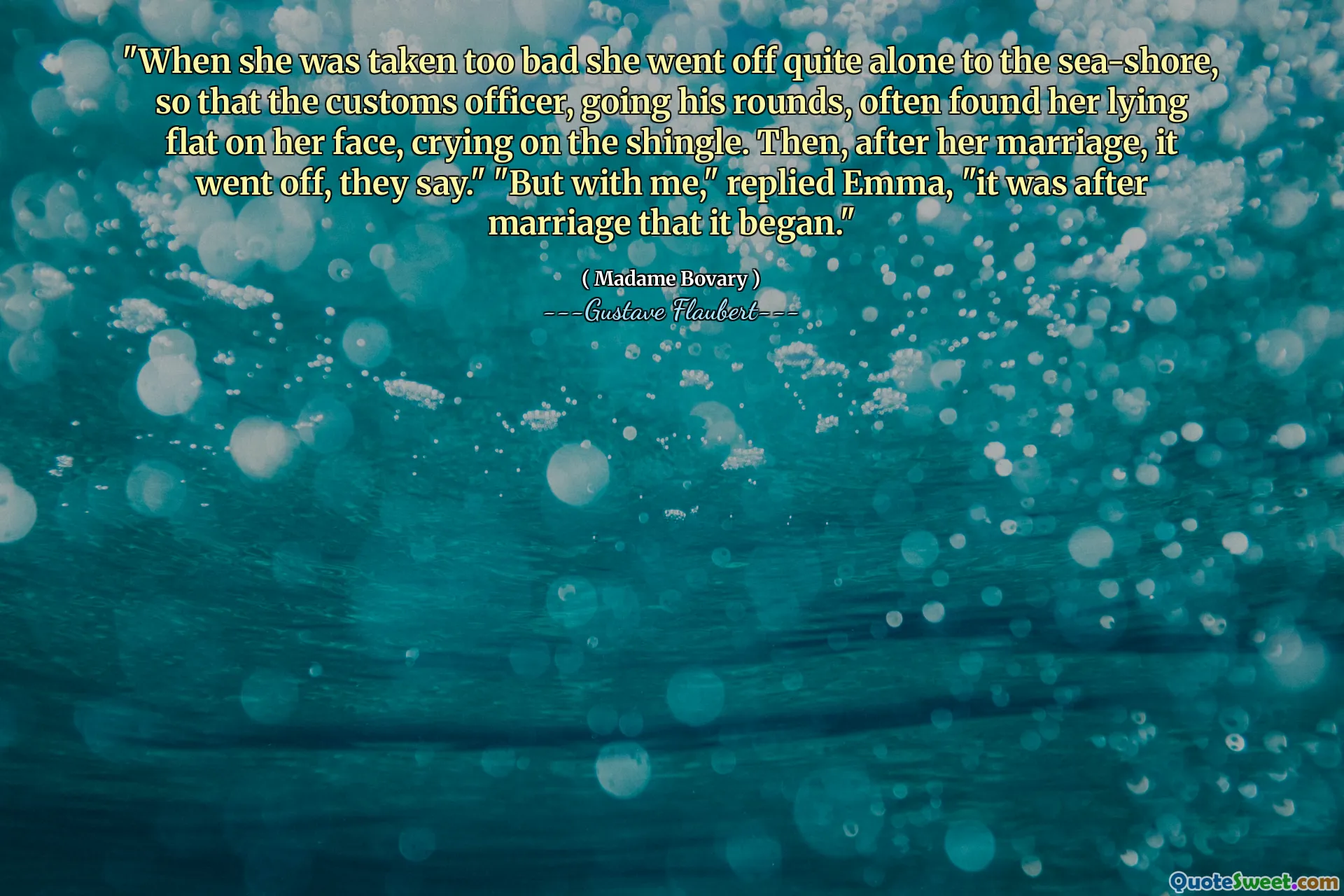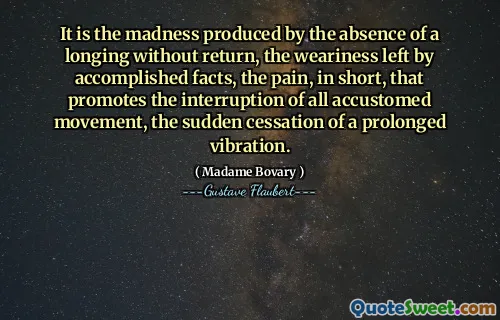
"When she was taken too bad she went off quite alone to the sea-shore, so that the customs officer, going his rounds, often found her lying flat on her face, crying on the shingle. Then, after her marriage, it went off, they say." "But with me," replied Emma, "it was after marriage that it began."
This excerpt from Gustave Flaubert's Madame Bovary poignantly illustrates the complex and often painful transformation that occurs in a person's emotional life in relation to marriage. The narrator contrasts two different experiences: one where suffering apparently subsides after marriage, and Emma's own starkly different reality where her anguish actually begins post-marriage. This reversal evokes the tragic theme central to the novel—the disillusionment and entrapment that marriage can impose, especially on women like Emma who yearn for passion and meaning beyond societal constraints. The image of the woman lying face down, weeping on the harsh, unyielding shingle of the sea-shore conveys a deep sense of vulnerability, isolation, and despair. The act of retreat to the sea-shore symbolizes attempt at escape or solace, yet the physical hardship of the environment underscores the permanence of her suffering. Emma’s response challenges the optimistic belief that marriage offers healing or respite and instead indicates that for some, constraints intensify inner turmoil. This subtle but profound tension speaks to broader themes of romantic idealism clashing with harsh realities, emotional inertia, and the limitations imposed by societal expectations. The quote invites reflection on how personal pain manifests, how social institutions shape individual experiences, and the sometimes lonely path of emotional struggle despite appearances or conventional wisdom. It embodies Flaubert’s relentless examination of human nature and societal hypocrisy, making this seemingly simple observation between two characters a powerful window into the tragic dimensions of love and existence.











